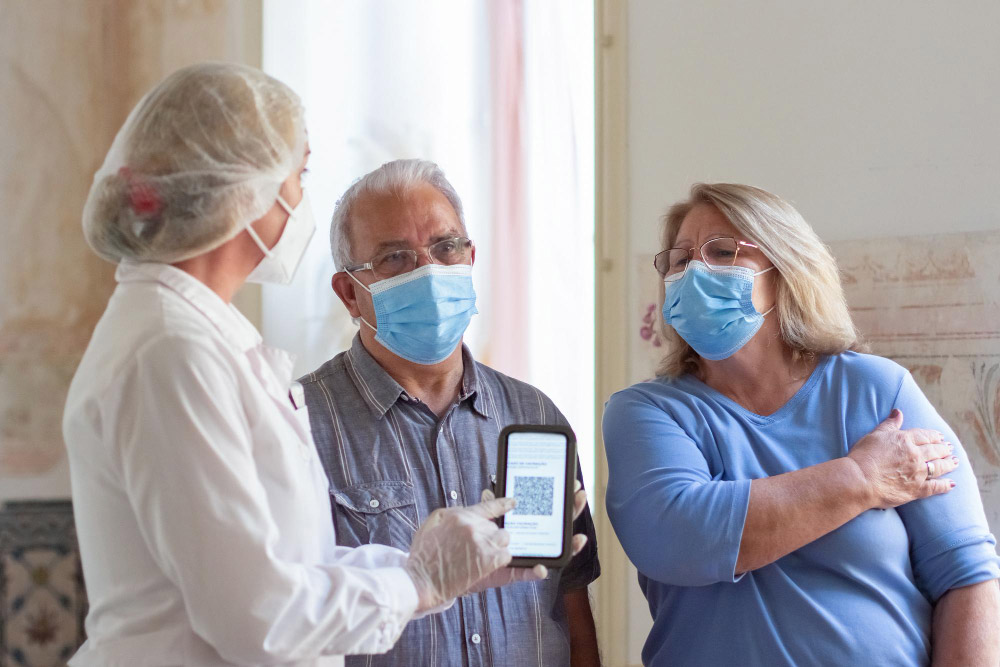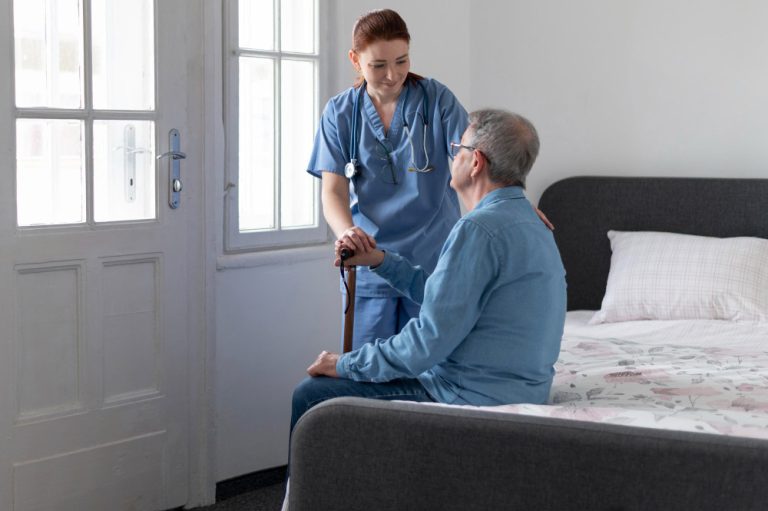life@seasontwo.com
Essential Guide to Post-Hospitalisation Care: Smooth Your Transition from Hospital to Home

Introduction
Post-hospitalisation care is crucial for ensuring a complete recovery after a hospital stay and preventing readmissions. This process involves managing medications and giving physical and emotional support, thereby reducing further complications and promoting long-term health. Along with ensuring family involvement and having a personalised care plan, properly coordinating with healthcare providers is also important in the recovery after hospital discharge.
What is Post-Hospitalisation Care?
Post-hospitalisation indicates the structured support and medical attention given to patients to ensure a smooth transition to home or another care setting after discharge from a hospital. The major goals of post-hospital care are recovery, rehabilitation and prevention of complications. It encompasses several services, including medication management, physical or occupational therapy, nutritional guidance, and regular health monitoring. The duration and type of care provided depend entirely on the individual’s health condition and specific requirements.
Pre-Hospitalisation vs Post-Hospitalisation Care
Pre-hospitalisation care involves the medical support and treatments given to a patient prior to their admission to a hospital. This includes doctor consultations, diagnostic tests, and medications and aims to find out the condition and prepare the patient for the treatment. Typically, this short-term period occurs in outpatient settings like clinics, diagnostic centres, or emergency rooms.
While post-hospitalisation care refers to the medical or supportive care given to a patient after discharge from the hospital. It focuses on recovery, rehabilitation, and preventing complications, ensuring the patient regains health and achieves long-term wellness. This recovery period after hospital discharge is for follow-up consultations, physiotherapy, medication management, home healthcare, and counselling sessions if needed.
Common Challenges After Hospital Discharge
- Difficulty in medication management and follow-up visits: After discharge, the majority of patients need to continue medications for a certain period and do follow-up visits. But, they may face confusion about the dosage of medicine and timing and may also require external mobility assistance.
- Risk of Infections and Complications: Patients discharged from hospitals are highly susceptible to infections, and there are potential complications if not monitored properly.
- Limited ability to perform daily activities: Sometimes, they require assistance for basic tasks like bathing, dressing, and cooking. It may be challenging for them.
- Emotional and physical fatigue: Not only physical exhaustion caused by illness and prolonged hospital stay, but also they need to overcome emotional challenges like anxiety and depression.
- Financial strain: Expenses associated with hospital stay and follow-up visits, high costs of medicines, and home care services during the recovery period may cause a financial burden to the patients.
Who Needs Post-Hospitalisation Care and Why?
- Patients recovering from surgery– Patients discharged from the hospital after major surgeries like heart procedures, joint replacement, or organ transplants often require post-hospital care. They also demand services like wound care, physical therapy, and pain management.
- Patients with chronic illness– Patients with chronic conditions like diabetes, heart disease, chronic obstructive pulmonary disease (COPD), or kidney disease need medication management, life support, and constant monitoring even after they leave the hospital.
- Elderly Patients- Older adults may face several challenges due to their age, as well as their multiple health issues. Hence, after hospital discharge, elders need care, including assistance with daily activities, fall prevention, and cognitive support.
- Patients recovering from stroke or neurological conditions– Recovering from a stroke or conditions like Parkinson’s disease or brain injuries often requires intensive post-hospitalisation care, including physical therapy, speech therapy, and occupational therapy.
- Patients with infections or complications– Sometimes, patients with severe infections, pneumonia, or post-ICU weakness get discharged with a continuous need for care like IV Treatments, monitoring for complications, and strength rehabilitation.
- Cancer patients- Treatments like chemotherapy, radiation, or surgery often leave the patients physically and emotionally drained. Therefore, they require care services including side effect management, nutritional support, and emotional care.
- Patients with mental health needs- Patients with conditions like depression, bipolar disorder, or schizophrenia need post-hospital care, including effective therapy sessions, medical management, and social support.
Key Benefits of Post-Hospitalisation Care
- Reduces Risk of Hospital Readmissions:
- Promotes Faster and Safer Recovery
- Improves Quality of Life
- Manages Chronic Conditions Effectively:
- Supports Functional Restoration
- Provides Emotional and Psychological Support
- Enhances Safety for Vulnerable Patients
- Ensures Continuity of Care
- Customises Care to Individual Needs
Types of Post-Hospitalisation Care
- Recovery at Home After Hospital Discharge
Recovery at home after hospital discharge or home-basedpost-hospital careis suitable for those who prefer recovery at home in a familiar environment with professional support. They generally get nursing care and physiotherapy sessions at their home itself. Usually, in this type of after-hospital care, medical equipment like hospital beds, oxygen cylinders, wheelchairs, and other assistive devices is arranged in the home. Sometimes, the doctor visits them at home, or they need to consult the doctor at the hospital for monitoring the recovery process. The patients also get palliative and hospice support, caregiver assistance, and counselling and emotional support at home.
- Recovery at the post-hospitalisation care facility
Post-hospitalisation centres are structured settings that offer round-the-clock care and supervision for patients who require medical attention in the recovery period. Usually, such facilities offer 24/7 medical supervision, rehabilitation programs, specialist consultations, medication management, personalised dietitian-planned meals, a safer and hygienic environment, and emergency care assistance. It is suitable for patients recovering from major surgeries, stroke or paralysis rehabilitation, and patients with complex medical needs, and families unable to provide full-time home care.
Comparison between Home-Based Post-Hospital Care and Post-Hospitalisation Centre
| Home-basedpost-hospital care | Post-hospitalisation care facility | |
| Environment | Familiar surrounding | Unfamiliar surrounding |
| Medical supervision | Limited to scheduled visits | 24/7 professional supervision available |
| Personal attention | Care from family members or home nurses | Trained staff provide structured care |
| Family involvement | Higher | Lower |
| cost | Generally, more cost-effective | Typically, higher cost |
| Access to medical equipment | Requires rental and setup at home | Fully equipped with medical and rehab tools |
| Suitability | Ideal for mild to moderate recovery needs | Suitable for complex or high-dependency recovery cases |
| Flexibility | Customisable care plans and schedules | Fixed routines |
| Emotional support | Surrounded by loved ones | Support from the professional counselling team |
Role of Caregivers in Recovery
Whether it is at a care centre or home, Caregivers or healthcareassistants play an integral role in the recovery journey. The key responsibilities of a caregiver encompass a wide range of tasks that meet the medical, functional, and emotional needs of a patient.
- Providing medical and health support- Caregivers/home nurseshelp in medication management and coordinate with healthcare providers, ensuring the patient’s needs are met properly.
- Facilitating Rehabilitation and Therapy- Rehabilitation is necessary for patients recovering from strokes, surgeries, or injuries. Home nurses support this process, helping with therapies and providing mobility support.
- Supporting Daily Living Activities- The Presence of a home nurse is mandatory for the elderly patients or those with limited mobility,assisting with personal care.
- Offering Emotional and Psychological Support- Recovering from an illness can be emotionally as well as physically challenging. Therefore, caregivers provide companionship, emotional encouragement, and mental health support for the patients.
- Ensuring Safety and Preventing Complications- They play a proactive role in keeping patients safe during the recovery journey through fall prevention, monitoring for complications, and educating patients and their families regarding the aftercare process.
Post-Hospitalisation Care Tips for Elderly Patients
- Create a Comprehensive Care Plan
- Use pill organisers or medication management apps to ensure medication adherence
- Follow dietary recommendations from a doctor or dietitian
- Prioritize fall prevention and encourage supervised mobility
- Facilitate rehabilitation and Mobility
- Monitor for complications like infections
- Provide emotional and social Support
- Don’t miss follow-ups with healthcare providers
Post-Hospitalisation centres in Kerala
Kerala’s healthcare landscape is renowned for its high-quality medical services, including post-hospitalisation care. Among the leading providers, Season Two Post-Hospitalisation, with care centres in Trivandrum and Ernakulam, stands out for its compassionate and affordable after-hospital care. Season Two also providesexceptional home nursing services to ensure recovery at home,and patients get quality care wherever they are.
Post-Hospitalisation Expenses and Planning
Recovery after a hospital stay requires thorough planning, which includes being financially ready for the process. The total expense of post-hospital care is based on factors such as the condition of the patient, the cost associated with in-home nursing, facility stays, therapies, medications, medical equipment, and transportation. Patients can also consider various insurance opportunities and available support programmes. By making a proper pre-expense calculation and a strategic plan based on it, patients and their families can ensure access to quality care without much financial strain.
Post-Hospital Care Plan Checklist
- Obtain and Review the Doctor’s Discharge Summary
- Compile a Medication List and Schedule Follow-Up Appointments
- Identify and Arrange Required Home Equipment
- Establish Emergency Contacts and Telemedicine Access
- Develop Nutrition and Physiotherapy Plans
- Arrange Home Care or Facility-Based Support
- Conduct a Home Safety Assessment
- Monitor for Complications and Track Progress
- Plan for Emotional and Social Support
- Explore Financial and Community Resources
Conclusion- CTA
Post-hospitalisation care serves as a vital link between intensive medical treatment and complete recovery, supporting patients to return to their normal daily routines.This after-hospital care is essential for those with chronic conditions, especially for the elderly. Personalised care after hospital discharge, whether through dedicated home-based services or specialised recovery centres, helps patients to regain their strength, mobility, and independence. Looking for reliable post-hospitalisation care for your loved one? Explore our home nursing and post-hospitalisation services at Season Two.




